Search Results
Showing results 501 to 520 of 528
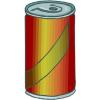
Root Beer Float
Source Institutions
In this quick activity/demonstration about density, learners examine what happens when two cans of root beer--one diet and one regular--are placed in a large container of water.

How can Clouds Help Keep the Air Warmer?
Source Institutions
In this activity, learners explore how air warms when it condenses water vapor or makes clouds.
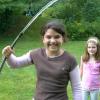
Gravity Fountains
Source Institutions
This activity (located on page 3 of the PDF under GPS: Glaciers Activity) is a full inquiry investigation into the forces of gravity and air pressure.
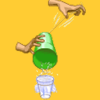
Hilarious Honker
Source Institutions
Make a hilarious honker! Fasten a piece of string through a hole in the end of a plastic cup and discover the hilarious sounds you can make.
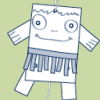
Action Figure
Source Institutions
In this project, students explore how levers work, by making a puppet with moving limbs.
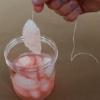
Ice Fishing
Source Institutions
In this activity, learners will use string and salt to lift an ice cube out of a glass of water. Salt depresses the freezing point of water, allowing it to melt around the string and refreeze.
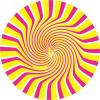
Spinning Blackboard
Source Institutions
Create beautiful spirals by drawing a straight line. This sounds crazy, but you can with a turntable (a record player or lazy susan), paper, and pen.
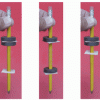
Magnetic Free Fall
Source Institutions
In this activity, learners use a pencil, magnets, and mat board to illustrate Newton's Second Law.
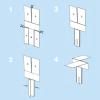
Copter Engineering
Source Institutions
In this activity, learners engineer a paper helicopter that spins to the ground when dropped.
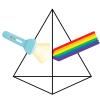
Rainbow Refraction
Source Institutions
In this activity, learners will explore how light can refract or break apart into different colors.

Geyser
Source Institutions
This Exploratorium activity can be used in many contexts because geysers are great opportunities for learning about heat and temperature changes as well as geological/space science phenomena.

Your Blind Spot
Source Institutions
In this activity, learners will explore how their own eyes work by experimenting with their photoreceptors.
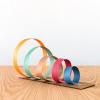
Resonant Rings
Source Institutions
Things that are different sizes and stiffness vibrate differently, and in this Exploratorium Science Snack, you'll see how rings of various diameters react to vibration and external forces.
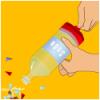
Mini Vortex
Source Institutions
In this activity, learners will build an air cannon out of simple materials you can find around the house. Although air is invisible to the eye, it is not by any means empty space!
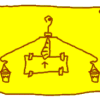
Make a Balance / Scale
Source Institutions
In this activity, learners create a kind of balance device using a wire coat hanger, some string, and paper cups.
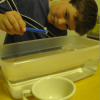
Shrinking Cups
Source Institutions
This is a quick activity (on page 2 of the PDF under Gecko Feet Activity) about the forces of gravity and surface tension and how their behavior is influenced by size.
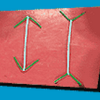
Arrows
Source Institutions
In this activity, learners surprise their eyes with an optical illusion involving arrows made out of pipe cleaners.
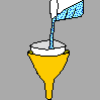
Filtering
Source Institutions
Make a quick and easy filter from household materials. A filter will catch any solids suspended in a liquid and filter them out. By using a filter, learners can discover amazing things.
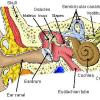
Model Eardrum
Source Institutions
In this activity (last activity on the page), learners make a model of the eardrum (also called the "tympanic membrane") and see how sound travels through the air.

Bendy Bones
Source Institutions
In this activity (on pages 19-24 of PDF), learners soak chicken bones or eggshells in vinegar for several days.
